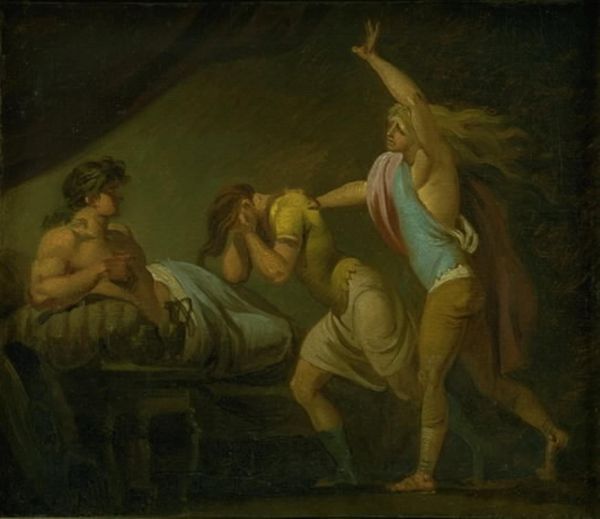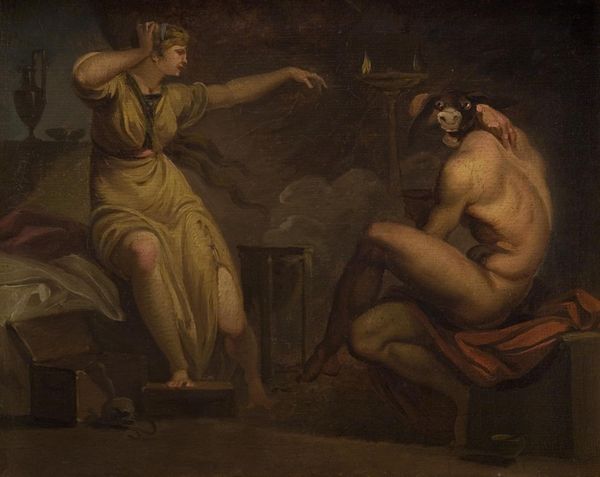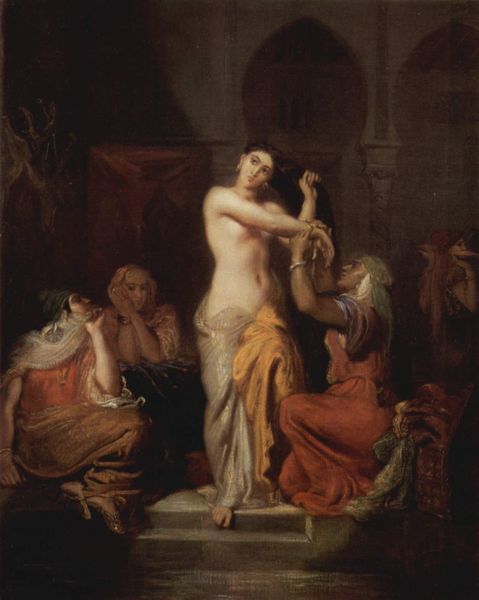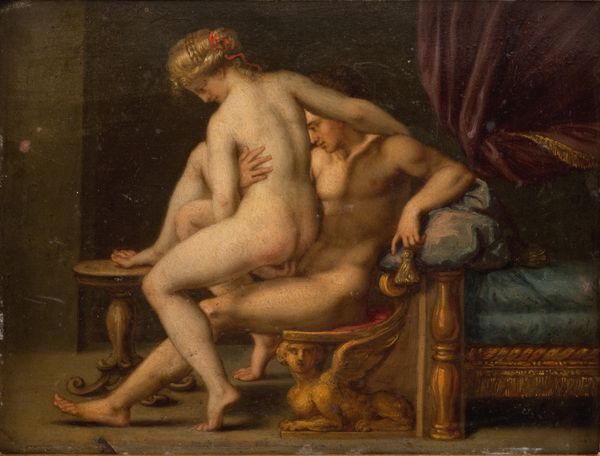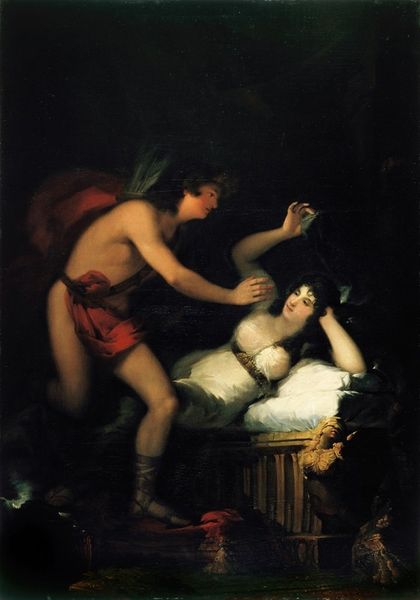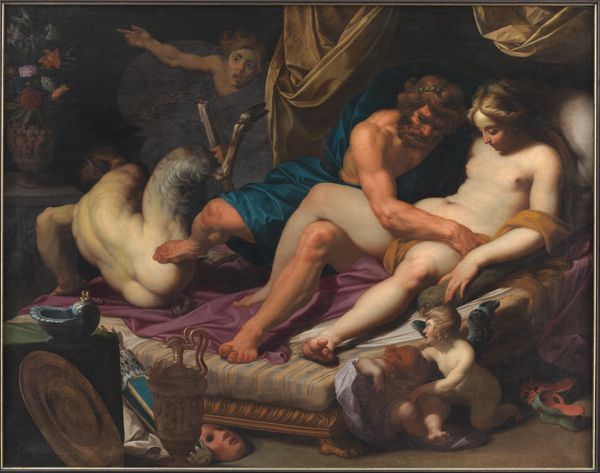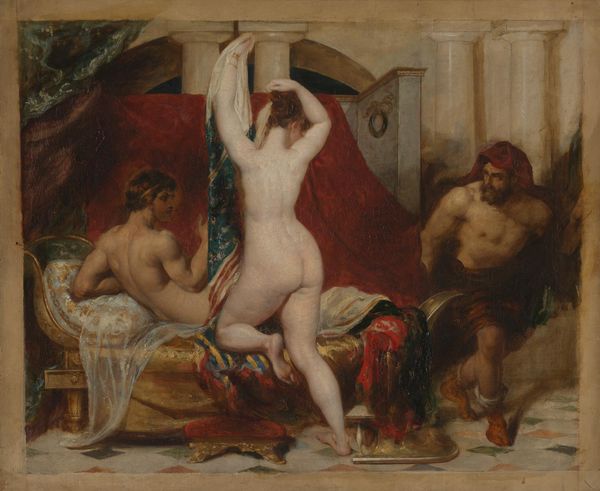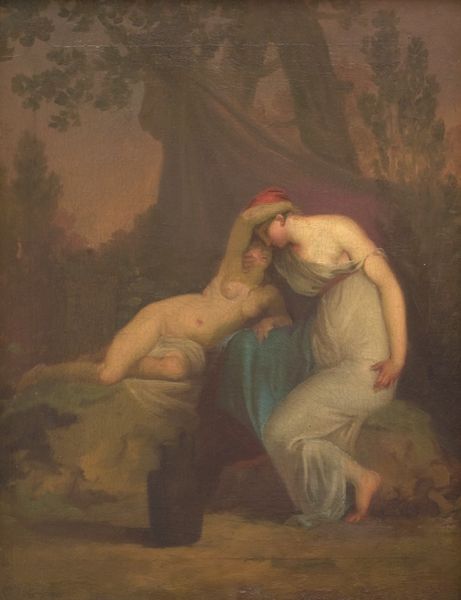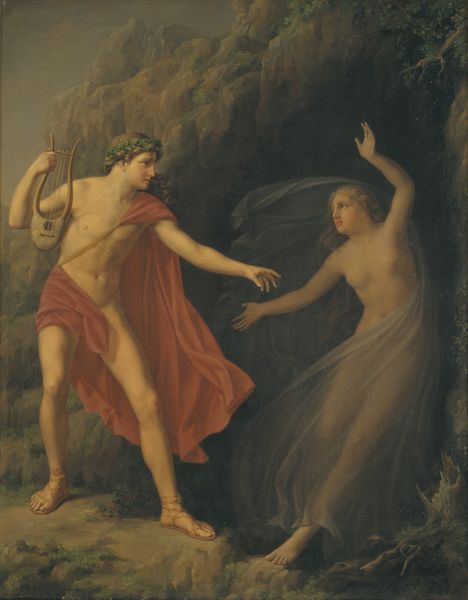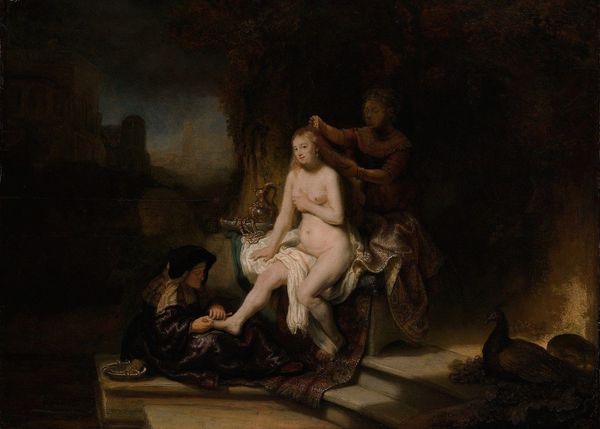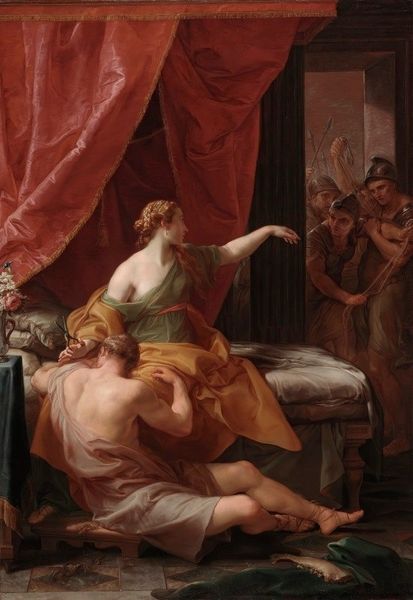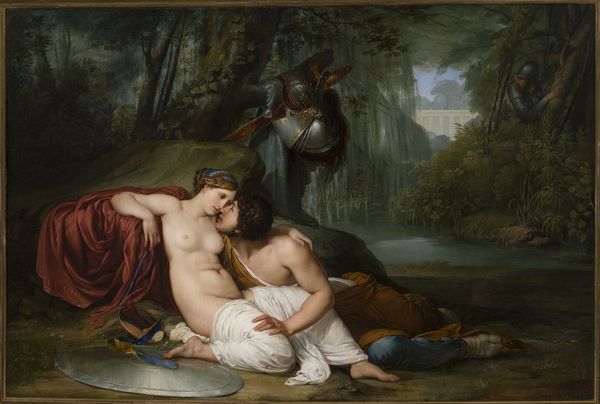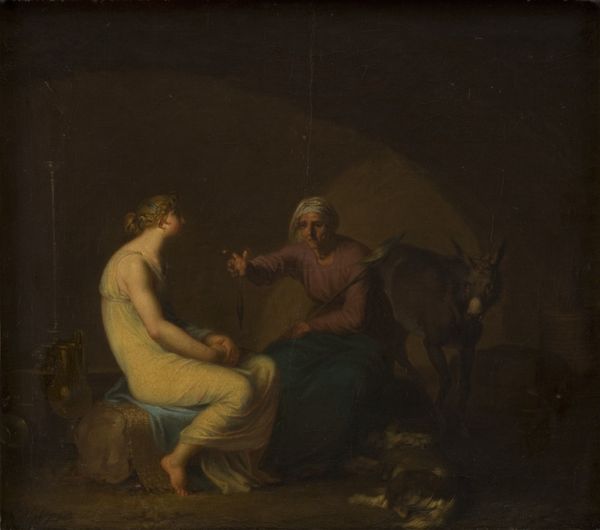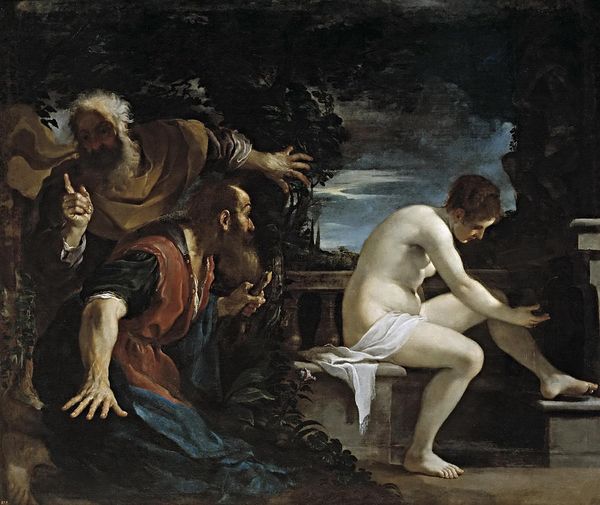
Fotis sees her Lover Lucius Transformed into an Ass. Motif from Apeleius' The Golden Ass 1809
0:00
0:00
painting, oil-paint, canvas
#
allegory
#
narrative-art
#
painting
#
oil-paint
#
figuration
#
canvas
#
underpainting
#
romanticism
#
history-painting
#
nude
Dimensions: 42 cm (height) x 47 cm (width) (Netto), 51 cm (height) x 56.2 cm (width) x 3 cm (depth) (Brutto)
Nicolai Abildgaard captured this scene from Apuleius's *The Golden Ass,* which speaks to the human condition, sometime around the late 1700s. Here, we see Lucius, having dabbled in magic, now bearing the head of an ass, a symbol laden with cultural weight. The donkey is often associated with foolishness and base desires, a motif found in many cultures throughout history. Consider Shakespeare's Bottom, similarly transformed, or even the biblical Balaam's ass, which gains the power of speech, revealing hidden truths. These recurring symbols resonate with primal fears about the loss of control and rationality. The emotional impact is palpable; Fotis's horror is a mirror reflecting our own anxieties about transformation and the unpredictable nature of desire. Just as the serpent whispers temptations, images persist and resurface, endlessly reinterpreting themselves in the theater of the human mind.
Comments
No comments
Be the first to comment and join the conversation on the ultimate creative platform.
